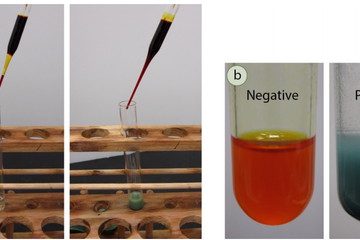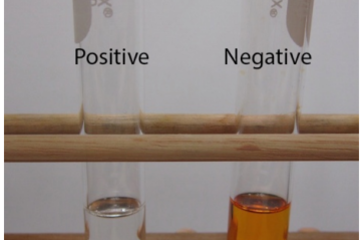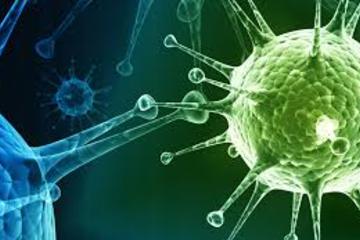We found 31 results that contain "green 1"
Posted on: Smoke test group on UAT from Venturit team

NAVIGATING CONTEXT
Smoke test article 1 : 12 Jyotirlingas of Lord Shiv
The jyotirlinga is the supreme partless reality, out of which Shiva partly appears. The jyothirlinga shrines, thus are places where Shiva appeared as a fiery column of light. Originally there were believed to be 64 jyothirlingas while 12 of them are considered to be very auspicious and holy. Each of the twelve jyothirlinga sites take the name of the presiding deity – each considered different manifestation of Shiva. At all these sites, the primary image is lingam representing the beginningless and endless Stambha pillar, symbolizing the infinite nature of Shiva. The twelve jyothirlinga are Somnath in Gujarat, Mallikarjuna at Srisailam in Andra Pradesh, Mahakaleswar at Ujjain in Madhya Pradesh, Omkareshwar in Madhya Pradesh, Kedarnath in Himalayas, Bhimashankar in Maharashtra, Viswanath at Varanasi in Uttar Pradesh, Triambakeshwar in Maharashtra, Vaidyanath Jyotirlinga at Deogarh in Jharkhand, Nageswar at Dwarka in Gujarat, Rameshwar at Rameswaram in Tamil Nadu and Ghushmeshwar at Shiwar in Sawai Madhopur district Rajasthan, 12th joytrilinga is Grishneshwar at ellora in aurangabad district Maharashtra.The following sanskrit sloka ( द्वादश ज्योतिर्लिंग स्तोत्रम्) (Dwadasha Jyotirlingum Strota) describes about the 12 Jyotirlingas
Authored by:
Venturit

Posted on: Smoke test group on UAT from Venturit team


Smoke test article 1 : 12 Jyotirlingas of Lord Shiv
The jyotirlinga is the supreme partless reality, out of which Shiva...
Authored by:
NAVIGATING CONTEXT
Monday, Mar 24, 2025
Posted on: #iteachmsu

ASSESSING LEARNING
Chemical testing overview
Overview
Before spectroscopic analysis (IR, NMR) became commonplace in the organic chemistry lab, chemical tests were heavily relied upon to support compound identification. A chemical test is typically a fast reaction performed in a test tube that gives a dramatic visual clue (a color change, precipitate, or gas formation) as evidence for a chemical reaction. For example, addition of an orange chromic acid reagent to some compounds causes the chromium reagent to change to a blue-green color (Figure 6.37a). This is considered a "positive" test result, and in this case indicates the presence of a functional group that can be oxidized (alcohol or aldehyde). A negative test result is retention of the original color of the reagent, in this case the orange color Description is the fiction-writing mode for transmitting a mental image of the particulars of a story. Together with dialogue, narration, exposition, and summarization, description is one of the most widely recognized of the fiction-writing modes. As stated in Writing from A to Z, edited by Kirk Polking, description is more than the amassing of details; it is bringing something to life by carefully choosing and arranging words and phrases to produce the desired effect.[6] The most appropriate and effective techniques for presenting description are a matter of ongoing discussion among writers and writing coaches.Description is the fiction-writing mode for transmitting a mental image of the particulars of a story. Together with dialogue, narration, exposition, and summarization, description is one of the most widely recognized of the fiction-writing modes. As stated in Writing from A to Z, edited by Kirk Polking, description is more than the amassing of details; it is bringing something to life by carefully choosing and arranging words and phrases to produce the desired effect.[6] The most appropriate and effective techniques for presenting description are a matter of ongoing discussion among writers and writing coaches.Description is the fiction-writing mode for transmitting a mental image of the particulars of a story. Together with dialogue, narration, exposition, and summarization, description is one of the most widely recognized of the fiction-writing modes. As stated in Writing from A to Z, edited by Kirk Polking, description is more than the amassing of details; it is bringing something to life by carefully choosing and arranging words and phrases to produce the desired effect.[6] The most appropriate and effective techniques for presenting description are a matter of ongoing discussion among writers and writing coaches.Description is the fiction-writing mode for transmitting a mental image of the particulars of a story. Together with dialogue, narration, exposition, and summarization, description is one of the most widely recognized of the fiction-writing modes. As stated in Writing from A to Z, edited by Kirk Polking, description is more than the amassing of details; it is bringing something to life by carefully choosing and arranging words and phrases to produce the desired effect.[6] The most appropriate and effective techniques for presenting description are a matter of ongoing discussion among writers and writing coaches.Description is the fiction-writing mode for transmitting a mental image of the particulars of a story. Together with dialogue, narration, exposition, and summarization, description is one of the most widely recognized of the fiction-writing modes. As stated in Writing from A to Z, edited by Kirk Polking, description is more than the amassing of details; it is bringing something to life by carefully choosing and arranging words and phrases to produce the desired effect.[6] The most appropriate and effective techniques for presenting description are a matter of ongoing discussion among writers and writing coaches.Description is the fiction-writing mode for transmitting a mental image of the particulars of a story. Together with dialogue, narration, exposition, and summarization, description is one of the most widely recognized of the fiction-writing modes. As stated in Writing from A to Z, edited by Kirk Polking, description is more than the amassing of details; it is bringing something to life by carefully choosing and arranging words and phrases to produce the desired effect.[6] The most appropriate and effective techniques for presenting description are a matter of ongoing discussion among writers and writing coaches.Description is the fiction-writing mode for transmitting a mental image of the particulars of a story. Together with dialogue, narration, exposition, and summarization, description is one of the most widely recognized of the fiction-writing modes. As stated in Writing from A to Z, edited by Kirk Polking, description is more than the amassing of details; it is bringing something to life by carefully choosing and arranging words and phrases to produce the desired effect.[6] The most appropriate and effective techniques for presenting description are a matter of ongoing discussion among writers and writing coaches.Description is the fiction-writing mode for transmitting a mental image of the particulars of a story. Together with dialogue, narration, exposition, and summarization, description is one of the most widely recognized of the fiction-writing modes. As stated in Writing from A to Z, edited by Kirk Polking, description is more than the amassing of details; it is bringing something to life by carefully choosing and arranging words and phrases to produce the desired effect.[6] The most appropriate and effective techniques for presenting description are a matter of ongoing discussion among writers and writing coaches.Description is the fiction-writing mode for transmitting a mental image of the particulars of a story. Together with dialogue, narration, exposition, and summarization, description is one of the most widely recognized of the fiction-writing modes. As stated in Writing from A to Z, edited by Kirk Polking, description is more than the amassing of details; it is bringing something to life by carefully choosing and arranging words and phrases to produce the desired effect.[6] The most appropriate and effective techniques for presenting description are a matter of ongoing discussion among writers and writing coaches.Description is the fiction-writing mode for transmitting a mental image of the particulars of a story. Together with dialogue, narration, exposition, and summarization, description is one of the most widely recognized of the fiction-writing modes. As stated in Writing from A to Z, edited by Kirk Polking, description is more than the amassing of details; it is bringing something to life by carefully choosing and arranging words and phrases to produce the desired effect.[6] The most appropriate and effective techniques for presenting description are a matter of ongoing discussion among writers and writing coaches.Description is the fiction-writing mode for transmitting a mental image of the particulars of a story. Together with dialogue, narration, exposition, and summarization, description is one of the most widely recognized of the fiction-writing modes. As stated in Writing from A to Z, edited by Kirk Polking, description is more than the amassing of details; it is bringing something to life by carefully choosing and arranging words and phrases to produce the desired effect.[6] The most appropriate and effective techniques for presenting description are a matter of ongoing discussion among writers and writing coaches.Description is the fiction-writing mode for transmitting a mental image of the particulars of a story. Together with dialogue, narration, exposition, and summarization, description is one of the most widely recognized of the fiction-writing modes. As stated in Writing from A to Z, edited by Kirk Polking, description is more than the amassing of details; it is bringing something to life by carefully choosing and arranging words and phrases to produce the desired effect.[6] The most appropriate and effective techniques for presenting description are a matter of ongoing discussion among writers and writing coaches.Description is the fiction-writing mode for transmitting a mental image of the particulars of a story. Together with dialogue, narration, exposition, and summarization, description is one of the most widely recognized of the fiction-writing modes. As stated in Writing from A to Z, edited by Kirk Polking, description is more than the amassing of details; it is bringing something to life by carefully choosing and arranging words and phrases to produce the desired effect.[6] The most appropriate and effective techniques for presenting description are a matter of ongoing discussion among writers and writing coaches.Description is the fiction-writing mode for transmitting a mental image of the particulars of a story. Together with dialogue, narration, exposition, and summarization, description is one of the most widely recognized of the fiction-writing modes. As stated in Writing from A to Z, edited by Kirk Polking, description is more than the amassing of details; it is bringing something to life by carefully choosing and arranging words and phrases to produce the desired effect.[6] The most appropriate and effective techniques for presenting description are a matter of ongoing discussion among writers and writing coaches.Description is the fiction-writing mode for transmitting a mental image of the particulars of a story. Together with dialogue, narration, exposition, and summarization, description is one of the most widely recognized of the fiction-writing modes. As stated in Writing from A to Z, edited by Kirk Polking, description is more than the amassing of details; it is bringing something to life by carefully choosing and arranging words and phrases to produce the desired effect.[6] The most appropriate and effective techniques for presenting description are a matter of ongoing discussion among writers and writing coaches.
Before spectroscopic analysis (IR, NMR) became commonplace in the organic chemistry lab, chemical tests were heavily relied upon to support compound identification. A chemical test is typically a fast reaction performed in a test tube that gives a dramatic visual clue (a color change, precipitate, or gas formation) as evidence for a chemical reaction. For example, addition of an orange chromic acid reagent to some compounds causes the chromium reagent to change to a blue-green color (Figure 6.37a). This is considered a "positive" test result, and in this case indicates the presence of a functional group that can be oxidized (alcohol or aldehyde). A negative test result is retention of the original color of the reagent, in this case the orange color Description is the fiction-writing mode for transmitting a mental image of the particulars of a story. Together with dialogue, narration, exposition, and summarization, description is one of the most widely recognized of the fiction-writing modes. As stated in Writing from A to Z, edited by Kirk Polking, description is more than the amassing of details; it is bringing something to life by carefully choosing and arranging words and phrases to produce the desired effect.[6] The most appropriate and effective techniques for presenting description are a matter of ongoing discussion among writers and writing coaches.Description is the fiction-writing mode for transmitting a mental image of the particulars of a story. Together with dialogue, narration, exposition, and summarization, description is one of the most widely recognized of the fiction-writing modes. As stated in Writing from A to Z, edited by Kirk Polking, description is more than the amassing of details; it is bringing something to life by carefully choosing and arranging words and phrases to produce the desired effect.[6] The most appropriate and effective techniques for presenting description are a matter of ongoing discussion among writers and writing coaches.Description is the fiction-writing mode for transmitting a mental image of the particulars of a story. Together with dialogue, narration, exposition, and summarization, description is one of the most widely recognized of the fiction-writing modes. As stated in Writing from A to Z, edited by Kirk Polking, description is more than the amassing of details; it is bringing something to life by carefully choosing and arranging words and phrases to produce the desired effect.[6] The most appropriate and effective techniques for presenting description are a matter of ongoing discussion among writers and writing coaches.Description is the fiction-writing mode for transmitting a mental image of the particulars of a story. Together with dialogue, narration, exposition, and summarization, description is one of the most widely recognized of the fiction-writing modes. As stated in Writing from A to Z, edited by Kirk Polking, description is more than the amassing of details; it is bringing something to life by carefully choosing and arranging words and phrases to produce the desired effect.[6] The most appropriate and effective techniques for presenting description are a matter of ongoing discussion among writers and writing coaches.Description is the fiction-writing mode for transmitting a mental image of the particulars of a story. Together with dialogue, narration, exposition, and summarization, description is one of the most widely recognized of the fiction-writing modes. As stated in Writing from A to Z, edited by Kirk Polking, description is more than the amassing of details; it is bringing something to life by carefully choosing and arranging words and phrases to produce the desired effect.[6] The most appropriate and effective techniques for presenting description are a matter of ongoing discussion among writers and writing coaches.Description is the fiction-writing mode for transmitting a mental image of the particulars of a story. Together with dialogue, narration, exposition, and summarization, description is one of the most widely recognized of the fiction-writing modes. As stated in Writing from A to Z, edited by Kirk Polking, description is more than the amassing of details; it is bringing something to life by carefully choosing and arranging words and phrases to produce the desired effect.[6] The most appropriate and effective techniques for presenting description are a matter of ongoing discussion among writers and writing coaches.Description is the fiction-writing mode for transmitting a mental image of the particulars of a story. Together with dialogue, narration, exposition, and summarization, description is one of the most widely recognized of the fiction-writing modes. As stated in Writing from A to Z, edited by Kirk Polking, description is more than the amassing of details; it is bringing something to life by carefully choosing and arranging words and phrases to produce the desired effect.[6] The most appropriate and effective techniques for presenting description are a matter of ongoing discussion among writers and writing coaches.Description is the fiction-writing mode for transmitting a mental image of the particulars of a story. Together with dialogue, narration, exposition, and summarization, description is one of the most widely recognized of the fiction-writing modes. As stated in Writing from A to Z, edited by Kirk Polking, description is more than the amassing of details; it is bringing something to life by carefully choosing and arranging words and phrases to produce the desired effect.[6] The most appropriate and effective techniques for presenting description are a matter of ongoing discussion among writers and writing coaches.Description is the fiction-writing mode for transmitting a mental image of the particulars of a story. Together with dialogue, narration, exposition, and summarization, description is one of the most widely recognized of the fiction-writing modes. As stated in Writing from A to Z, edited by Kirk Polking, description is more than the amassing of details; it is bringing something to life by carefully choosing and arranging words and phrases to produce the desired effect.[6] The most appropriate and effective techniques for presenting description are a matter of ongoing discussion among writers and writing coaches.Description is the fiction-writing mode for transmitting a mental image of the particulars of a story. Together with dialogue, narration, exposition, and summarization, description is one of the most widely recognized of the fiction-writing modes. As stated in Writing from A to Z, edited by Kirk Polking, description is more than the amassing of details; it is bringing something to life by carefully choosing and arranging words and phrases to produce the desired effect.[6] The most appropriate and effective techniques for presenting description are a matter of ongoing discussion among writers and writing coaches.Description is the fiction-writing mode for transmitting a mental image of the particulars of a story. Together with dialogue, narration, exposition, and summarization, description is one of the most widely recognized of the fiction-writing modes. As stated in Writing from A to Z, edited by Kirk Polking, description is more than the amassing of details; it is bringing something to life by carefully choosing and arranging words and phrases to produce the desired effect.[6] The most appropriate and effective techniques for presenting description are a matter of ongoing discussion among writers and writing coaches.Description is the fiction-writing mode for transmitting a mental image of the particulars of a story. Together with dialogue, narration, exposition, and summarization, description is one of the most widely recognized of the fiction-writing modes. As stated in Writing from A to Z, edited by Kirk Polking, description is more than the amassing of details; it is bringing something to life by carefully choosing and arranging words and phrases to produce the desired effect.[6] The most appropriate and effective techniques for presenting description are a matter of ongoing discussion among writers and writing coaches.Description is the fiction-writing mode for transmitting a mental image of the particulars of a story. Together with dialogue, narration, exposition, and summarization, description is one of the most widely recognized of the fiction-writing modes. As stated in Writing from A to Z, edited by Kirk Polking, description is more than the amassing of details; it is bringing something to life by carefully choosing and arranging words and phrases to produce the desired effect.[6] The most appropriate and effective techniques for presenting description are a matter of ongoing discussion among writers and writing coaches.Description is the fiction-writing mode for transmitting a mental image of the particulars of a story. Together with dialogue, narration, exposition, and summarization, description is one of the most widely recognized of the fiction-writing modes. As stated in Writing from A to Z, edited by Kirk Polking, description is more than the amassing of details; it is bringing something to life by carefully choosing and arranging words and phrases to produce the desired effect.[6] The most appropriate and effective techniques for presenting description are a matter of ongoing discussion among writers and writing coaches.Description is the fiction-writing mode for transmitting a mental image of the particulars of a story. Together with dialogue, narration, exposition, and summarization, description is one of the most widely recognized of the fiction-writing modes. As stated in Writing from A to Z, edited by Kirk Polking, description is more than the amassing of details; it is bringing something to life by carefully choosing and arranging words and phrases to produce the desired effect.[6] The most appropriate and effective techniques for presenting description are a matter of ongoing discussion among writers and writing coaches.
Authored by:
Chathuri

Posted on: #iteachmsu


Chemical testing overview
Overview
Before spectroscopic analysis (IR, NMR) becam...
Before spectroscopic analysis (IR, NMR) becam...
Authored by:
ASSESSING LEARNING
Friday, Apr 2, 2021
Posted on: #iteachmsu

ASSESSING LEARNING
Chemical testing overview
Before spectroscopic analysis (IR, NMR) became commonplace in the organic chemistry lab, chemical tests were heavily relied upon to support compound identification. A chemical test is typically a fast reaction performed in a test tube that gives a dramatic visual clue (a color change, precipitate, or gas formation) as evidence for a chemical reaction. For example, addition of an orange chromic acid reagent to some compounds causes the chromium reagent to change to a blue-green color (Figure 6.37a). This is considered a "positive" test result, and in this case indicates the presence of a functional group that can be oxidized (alcohol or aldehyde). A negative test result is retention of the original color of the reagent, in this case the orange color
Authored by:
Chathuri

Posted on: #iteachmsu


Chemical testing overview
Before spectroscopic analysis (IR, NMR) became commonplace in the o...
Authored by:
ASSESSING LEARNING
Monday, Aug 26, 2019
Posted on: 12 Best API Testing Tools for 2025

PEDAGOGICAL DESIGN
Child group article by chathu: Dual Crop Farming
Dual crop farming or multiple cropping can be either mixed cropping or intercropping.
Mixed cropping refers to raising two or more types of crops in the same area at the same time. This increases the probability that at least one type of crop will survive even if the entire area experiences adverse conditions such as drought.
Intercropping is similar, but with the addition of planting seeds in a specific pattern or sequence in the field. This allows farmers to maximize yield or productivity and the space available.
Dual crop farming is very popular among farmers because it optimizes the use of equipment, soil, water, and farming supplies; it also maximizes the production of a small farm all year round.
Farmers like that it reduces the risk of total loss from calamities, drought, pests, and diseases. Some good examples of multiple cropping are growing strawberries and watermelons in Florida or wheat and soybeans in addition to corn and canola in the Carolinas.
Mixed cropping refers to raising two or more types of crops in the same area at the same time. This increases the probability that at least one type of crop will survive even if the entire area experiences adverse conditions such as drought.
Intercropping is similar, but with the addition of planting seeds in a specific pattern or sequence in the field. This allows farmers to maximize yield or productivity and the space available.
Dual crop farming is very popular among farmers because it optimizes the use of equipment, soil, water, and farming supplies; it also maximizes the production of a small farm all year round.
Farmers like that it reduces the risk of total loss from calamities, drought, pests, and diseases. Some good examples of multiple cropping are growing strawberries and watermelons in Florida or wheat and soybeans in addition to corn and canola in the Carolinas.
Posted by:
Chathuri Hewapathirana 1

Posted on: 12 Best API Testing Tools for 2025


Child group article by chathu: Dual Crop Farming
Dual crop farming or multiple cropping can be either mixed cropping...
Posted by:
PEDAGOGICAL DESIGN
Wednesday, Jul 30, 2025
Posted on: #iteachmsu

By Chathu: Fish Farming article
Fish farming is an ideal business idea for investors with available land, and it doesn’t always require a large body of water. You can start a fish farm either by creating fish ponds or investing in fish tanks; it’s a highly scalable business idea. Once you have the proper knowledge of fish raising, you will be able to decide the type of fish to raise. According to FinModelsLab, a well-run fish farm can produce a return on investment (ROI) of 15% to 40% annually, with many fish farmers achieving a full return on their investment within three to five years.
Fish such as tilapia, cod, trout, and catfish are popular because they are easy to raise and in high demand. Small-scale farms are the usual suppliers of fish in their local supermarkets and restaurants.
Other popular varieties of commercially-raised fish include:
Yellow Perch
Eel
Grass Carp
Tuna
Salmon
Not all fish are raised for food. Goldfish and koi are popular fish to farm as well. For non-food fish, focus on cultivating premium species that will fetch a higher price when you sell. Whether you are raising fish for food or not, adopting sustainable farming practices will be better for both your business branding and your long-term operational costs.
The decision as to which fish you want to raise will ultimately rely on your skill, financial capacity, market demand, and agro-climatic condition. This refers to the normal soil types, rainfall, temperature, and water availability that affect the type of vegetation in the area.
Fish such as tilapia, cod, trout, and catfish are popular because they are easy to raise and in high demand. Small-scale farms are the usual suppliers of fish in their local supermarkets and restaurants.
Other popular varieties of commercially-raised fish include:
Yellow Perch
Eel
Grass Carp
Tuna
Salmon
Not all fish are raised for food. Goldfish and koi are popular fish to farm as well. For non-food fish, focus on cultivating premium species that will fetch a higher price when you sell. Whether you are raising fish for food or not, adopting sustainable farming practices will be better for both your business branding and your long-term operational costs.
The decision as to which fish you want to raise will ultimately rely on your skill, financial capacity, market demand, and agro-climatic condition. This refers to the normal soil types, rainfall, temperature, and water availability that affect the type of vegetation in the area.
Posted by:
Chathuri Hewapathirana 1

Posted on: #iteachmsu


By Chathu: Fish Farming article
Fish farming is an ideal business idea for investors with available...
Posted by:
Wednesday, Jul 30, 2025
Posted on: #iteachmsu

ASSESSING LEARNING
Chemical testing overview
Overview
Before spectroscopic analysis (IR, NMR) became commonplace in the organic chemistry lab, chemical tests were heavily relied upon to support compound identification. A chemical test is typically a fast reaction performed in a test tube that gives a dramatic visual clue (a color change, precipitate, or gas formation) as evidence for a chemical reaction. For example, addition of an orange chromic acid reagent to some compounds causes the chromium reagent to change to a blue-green color (Figure 6.37a). This is considered a "positive" test result, and in this case indicates the presence of a functional group that can be oxidized (alcohol or aldehyde). A negative test result is retention of the original color of the reagent, in this case the orange color
Before spectroscopic analysis (IR, NMR) became commonplace in the organic chemistry lab, chemical tests were heavily relied upon to support compound identification. A chemical test is typically a fast reaction performed in a test tube that gives a dramatic visual clue (a color change, precipitate, or gas formation) as evidence for a chemical reaction. For example, addition of an orange chromic acid reagent to some compounds causes the chromium reagent to change to a blue-green color (Figure 6.37a). This is considered a "positive" test result, and in this case indicates the presence of a functional group that can be oxidized (alcohol or aldehyde). A negative test result is retention of the original color of the reagent, in this case the orange color
Authored by:
Chathuri

Posted on: #iteachmsu


Chemical testing overview
Overview
Before spectroscopic analysis (IR, NMR) becam...
Before spectroscopic analysis (IR, NMR) becam...
Authored by:
ASSESSING LEARNING
Monday, Aug 26, 2019
Posted on: #iteachmsu

ASSESSING LEARNING
Article450
5 days ago - A girl answering (= matching) the description of the missing teenager was spotted in Glasgow. ... These examples are from the Cambridge English Corpus and from sources on the web. Any opinions in the examples do not represent the opinion of the Cambridge Dictionary editors or of ..
5 days ago - A girl answering (= matching) the description of the missing teenager was spotted in Glasgow. ... These examples are from the Cambridge English Corpus and from sources on the web. Any opinions in the examples do not represent the opinion of the Cambridge Dictionary editors or of ....
5 days ago - A girl answering (= matching) the description of the missing teenager was spotted in Glasgow. ... These examples are from the Cambridge English Corpus and from sources on the web. Any opinions in the examples do not represent the opinion of the Cambridge Dictionary editors or of ....
Authored by:
kemil

Posted on: #iteachmsu


Article450
5 days ago - A girl answering (= matching) the descriptio...
Authored by:
ASSESSING LEARNING
Monday, Sep 30, 2019
Posted on: #iteachmsu

PEDAGOGICAL DESIGN
ADHD and School interventions - ADDED- ADHD and School interventions - ADDEDADHD and School interven
ADHD and School interventions - ADDEDADHD and School interventions - ADDEDADHD and School interventions - ADDEDADHD and School interventions - ADDEDADHD and School interventions - ADDEDADHD and School interventions - ADDEDADHD and School interventions - ADDEDADHD and School interventions - ADDEDADHD and School interventions - ADDED
Authored by:
Chathuri

Posted on: #iteachmsu


ADHD and School interventions - ADDED- ADHD and School interventions - ADDEDADHD and School interven
ADHD and School interventions - ADDEDADHD and School interventions ...
Authored by:
PEDAGOGICAL DESIGN
Tuesday, Nov 12, 2019

